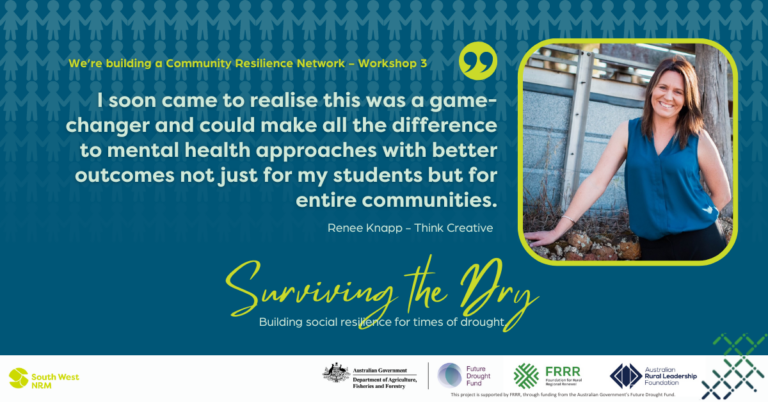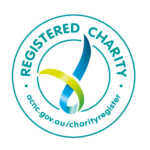
When former Boyup Brook school teacher Renee Knapp came up with a creative new idea for addressing the ever-increasing number of students she was seeing with worsening mental health challenges, she couldn’t possibly have realised the flame of change she would ignite.
It was about six years ago when Ms Knapp lead development of an award-winning Community Mental Health Action Team in her town which brought together a teacher, a doctor, a business owner and a range of other passionate community members committed to addressing the issue.
“I set this team up to start looking at the big picture and to start seeing what we could do to improve awareness, education, support pathways and systems that were currently in place,” she said.
“I had never in my education career engaged with people in other sectors regarding improvements for our system but I soon came to realise that this was a game changer and could make all the difference to mental health approaches with better outcomes not just for my students but for entire communities.”
Now Ms Knapp runs her own consultancy called Think Effective which helps communities improve mental health outcomes using her highly collaborative approach.
That makes her a perfect fit for assisting South West NRM with its current project to develop a Community Resilience Network in preparation for the predicted increase in drought events and evidence of the expected associated social impacts.
Ms Knapp will lead discussion at the third in a series of six workshops being held in several locations across the South West between February and September.
On May 3, she will help participants with developing a framework for community resilience.
“We’ll take the amazing strengths that already exist in all of the sectors and from passionate people across communities and put them together to create localised and sustainable change,” Ms Knapp said.
“When we have a process for people to work together, that’s when we can make a difference.”
Ms Knapp said she had attended and presented at conferences across Australia where desires to address mental health challenges in communities with a collaborative, shared and multi-sector approach were often expressed but lacked a clear process to make it happen.
“If you are passionate about improving mental health outcomes across your community or improving wellbeing, whether you are part of a collective group or just one individual I can provide you with a step-by-step process and framework to make this happen,” Ms Knapp said.
“Common sense solutions can be created that consider local needs and unique challenges when we work collaboratively in an effective manner. If this sounds like something you are interested in learning more about then this workshop is for you.”
South West NRM has partnered with Community Resource Centres throughout the South West to assist with delivery of the meetings.
The aim of the Community Resilience Network project is to:
- Increase community access to suitable support services, especially early intervention tools that help to build individual and community resilience;
- Share resources and learnings to develop partnerships across the region;
- Develop plans to further build community resilience.
Sustainable Agriculture Manager Peter Clifton said: “The meetings are held online and at CRCs in Boyup Brook, Bridgetown, Donnybrook, Harvey, Brunswick and Manjimup.”
Workshop 3, with discussion facilitated by Ms Knapp, is on 3 May, 2024 at 12pm for one hour. Participation in previous workshops is not required for joining in workshop 3.
To find out more or register your interest in the Community Resilience Network get in touch with one of the CRCs listed above or contact Peter Clifton on 0409 680 900 or [email protected]
This project is supported by FRRR, through funding from the Australian Government’s Future Drought Fund. It is one of five ‘Surviving the Dry’ projects throughout the South West.
Sources:
New Insights Into the Relationship Between Drought and Mental Health Emerging From the Australian Rural Mental Health Study
https://www.frontiersin.org/journals/psychiatry/articles/10.3389/fpsyt.2021.719786/full
South West Western Australia Drought Resilience Situational Analysis



